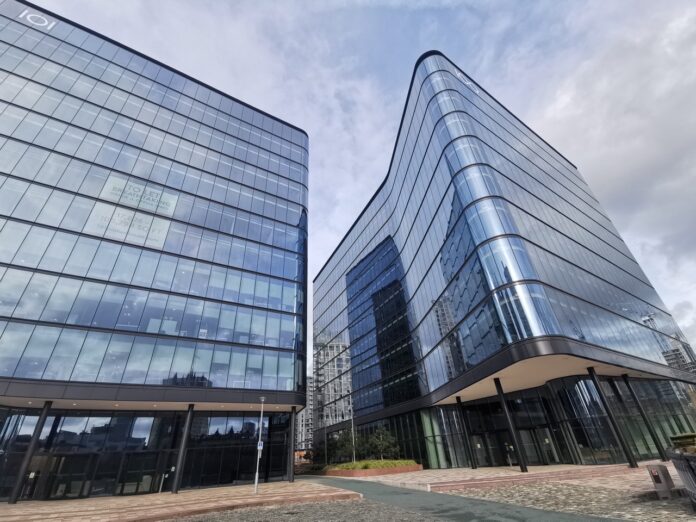Despite a slight upturn in domestic trade, Omicron related disruption and high inflation fuelled by rising energy prices and the situation in Ukraine have caused a levelling off in the GM economy, according to the findings of the latest Quarterly Economic Survey (QES) conducted by Greater Manchester Chamber of Commerce (GMCC).
The Greater Manchester Index, a composite indicator made of key QES measures, now stands at 32.3, a decrease of 0.2 points from the previous quarter’s results. This is the fourth quarter in a row that the Greater Manchester IndexTM has been in the low 30s, a firm indicator that the bounce back from Covid has stabilised.
The survey of 424 businesses held between February 15th to March 11th revealed that sales in the domestic market to UK customers increased marginally in the construction and services sectors whereas in the manufacturing sector, it declined slightly. Whilst domestic trade increased overall by 1.5 percentage points, relative to Q4 2021, the decline in international trade in Q1 has offset these modest gains. On the plus side, the order books of businesses in all sectors seem steady. That could secure current levels of activity, but it will be reliant on other macro-economic developments.
Subrahmaniam Krishnan-Harihara, Head of Research at Greater Manchester Chamber of Commerce (pictured), said: “Amongst the economic challenges currently affecting businesses across the city region, inflation is foremost. Businesses in all sectors report rising cost of materials, which will be further compounded by impending tax rises.
“Inflation and the soaring cost of living will undoubtedly affect consumer spending, which was sustaining economic growth in 2021. We expect inflation to outpace wage growth in the near-term and lessen consumer spending. Business investment is lagging, and this is a serious ongoing concern. Since cash positions have weakened amongst businesses, investment in capital projects is likely to remain constrained.”
Despite the softening in growth, there is optimism that businesses can maintain revenues. To cover higher costs, many respondents (59%) report that they will be increasing the price at which they sell their goods and services. 57% of QES respondents are looking to add to their employee headcount but two-thirds of those attempting to recruit face recruitment difficulties with skilled and technical occupations currently being the hardest to recruit for. This has resulted in significant wage inflation.
Subrahmaniam added: “As the economy started to recover from the impact of Covid-19, competition for talent went up. The latest QES results show that wages are set to increase in the coming financial year. For some specialist roles, pay settlements of 35%-40% higher than current wages are available. In general, Greater Manchester based businesses expect to have to enhance pay by an average of 8%. To ensure that labour shortages do not hamper long-term economic growth, it is vital that skills training and workforce development gets renewed focus. On that aspect, the QES results show an encouraging trend: business investment in training has shown a quarterly upturn. Businesses have grasped the problem and are prioritising upskilling and reskilling opportunities.”







